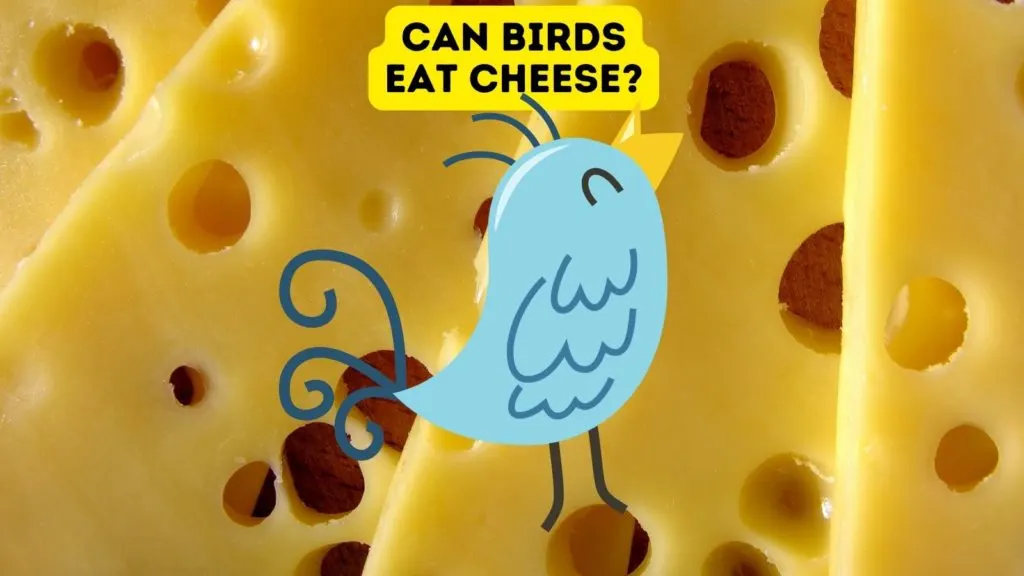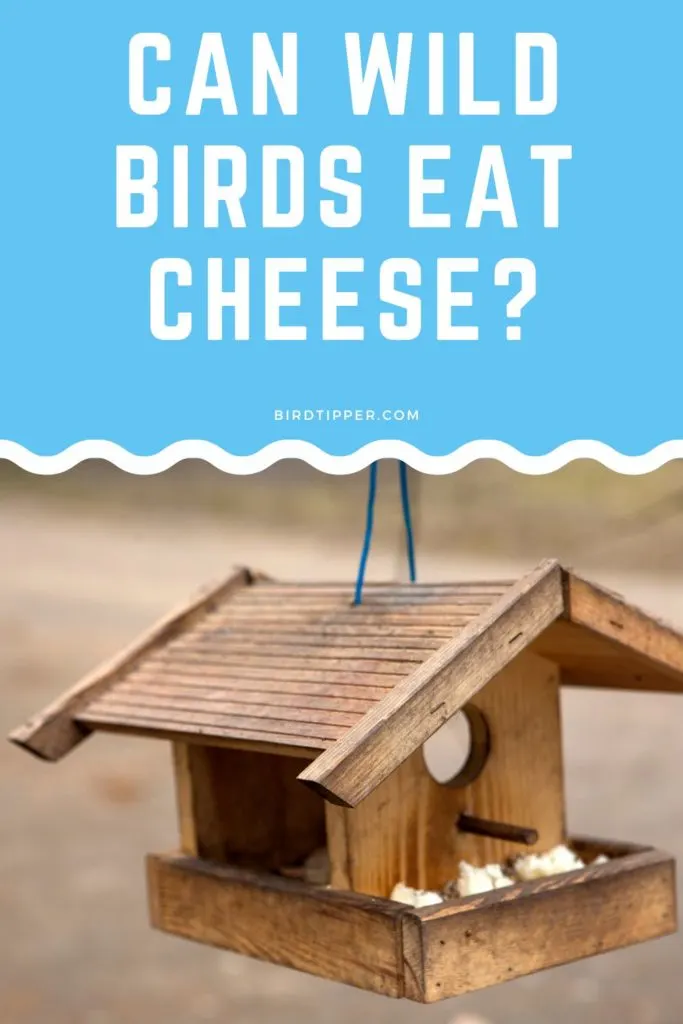If you’re like most backyard bird enthusiasts, you probably enjoy putting out a variety of foods to attract different types of birds. But there’s one food that seems to be a bit of a controversial topic among birders: cheese. So, what’s the verdict? Can birds eat cheese? Let’s take a closer look.

Which Birds Will Eat Cheese?
Many wild birds can eat cheese, and it can be a good source of protein for them, especially in winter. However, it should be given in moderation. Here are some types of wild birds that might eat cheese:
- Robins and Thrushes: They are known to eat cheese and can be attracted to gardens if cheese is offered.
- Wrens: Small pieces of cheese can be a suitable food for these tiny birds.
- Blue Tits and Great Tits: These birds are often seen on bird tables and can eat cheese.
- Blackbirds: They also enjoy cheese and can be commonly found in gardens.
- Starlings: Known for their varied diet, starlings may also eat cheese.
How to Feed Cheese to Birds Safely
One of the main arguments in favor of feeding wild birds cheese is that many birds love it! In fact, some birds will even prefer cheese over other foods—but cheese should always just be an occasional treat.
Cheese is a good source of fat and protein, which can be especially important during the winter months when food is scarce. Fat provides birds with energy, and protein helps them build strong muscles and feathers.
In general, many birds seem to enjoy eating cheeses broken into small bits. You can also grate the cheese to make it easier for the birds to enjoy.
Which Types of Cheese Can Birds Eat?
Only a few types of cheese are suitable and safe for feeding birds. Here are some guidelines on cheese for bird feeders:
- Cheddar
- Colby
- Monterey Jack
- Swiss
- String Cheese cut into small, bite-size pieces work well for smaller birds
Only put out a small amount of cheese at a time, as it will spoil fast if not eaten.
Monitor feeders and remove any spoiled cheese immediately, to avoid illnesses.
Remember: never serve moldy cheese (or any other foods) to birds.
Which Types of Cheese NOT to Feed Birds
One of the main concerns about feeding cheese to birds is that cheese is high in salt which, in excess, can be harmful to birds’ health. While sodium is essential to the diet of birds, too much salt can cause a list of problems ranging from kidney failure to tremors to death.
Several cheese have salt levels too high for birds. Avoid cottage cheese and ricotta which contain salt levels that are too high for birds.
The soft, spreadable textures of these cheeses make them difficult for birds to handle and eat. They are more likely to get the cheese stuck in their beaks, feathers or around feeders.
Similarly, avoid soft cheeses like cream cheese or brie. These cheeses are too soft for birds to handle and may get stuck in their beaks and feathers.
You also want to avoid Velvetta and similar processed cheeses like sliced American cheese. These contain preservatives, salt, colors and other ingredients that are not natural foods for wild birds.
After taking a closer look at the pros and cons of feeding wild birds cheese, it’s up to you to decide whether or not it’s something you want to do. If you do decide to give it a try, be sure to offer it in moderation.
More Posts You Might Like
Pin it to remember

- Can Grackles Be Dangerous to Your Dog? - October 13, 2022
- Can Hummingbirds Predict Hurricanes? - October 1, 2022
- How to Make Eggshell Calcium for Birds - September 25, 2022
